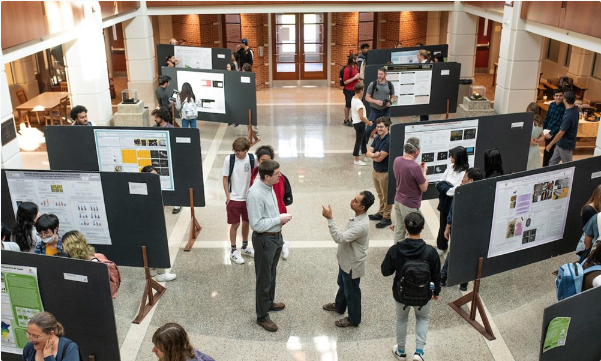Date of Award
4-2019
Document Type
Thesis
First Advisor
Matthew Oware
Second Advisor
Kevin Moore
Third Advisor
Sarah Rowley
Abstract
One may think that masculinity is defined by being a male, but existing literature shows that there is much more to gender identity than the biological aspects of maleness. One's gender may be identified as masculine, feminine, non-binary, or gender non-conforming. Historically, there has been an ascription of sex onto our understandings of gender, which has created rigid gender binaries of male and female. Such binaries limit the ways society allows individuals to perform their gender. Regardless of gender identity, one's experiences of masculinity is constructed based upon these gender norms and binaries, which are notions that create narratives of how one should act. Similarly, ideas regarding evolution, race, media, and numerous other cultural constructions shape such narratives as well. Using data from 10 self-identified cisgender men at DePauw University, this thesis will focus on cultural constructions that contribute to the malleability of masculinity.
While much research has been done to examine the scope of masculinity, many scholars agree that being a man is affected by categories such as race, media, class, education, and the family. The men I interviewed addressed these same categories, discussing their masculinity in terms of what they learned from their family and the media, as well as an understanding of how their time and education at DePauw has affected their manhood.
Although there are connections between my data and the existing literature on masculinity, there are a myriad of other ways men construct their masculinity. Thus, while I recognize the similarities between my data and existing scholarship, I think there is more to be said about the social construction of masculinity. Likewise, the fact that my participants came from varying backgrounds, but repeated similar notions connected to masculinity, shows the environment at DePauw impacts masculinity.
I find that existing literature on masculinity is useful in explaining how men have constructed their masculinity. However, in analyzing both the existing scholarship on masculinity and the data from these interviews, I find that masculinity is complex and dynamic. So complex and dynamic that the only way to appropriately describe it would be in terms of it being a malleable process that changes and occurs throughout one's entire life.
Recommended Citation
Hagedorn, Gabriella 19, "The Socialization Process of Masculinity, and Its Manifestation at DePauw University: How Race, Media, and Gender Contribute to the Malleability of Masculinity" (2019). Honor Scholar Theses. 109, Scholarly and Creative Work from DePauw University.
https://scholarship.depauw.edu/studentresearch/109



Comments
Honor Scholar Thesis